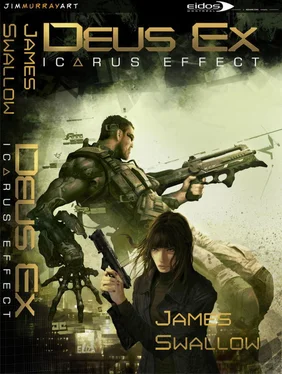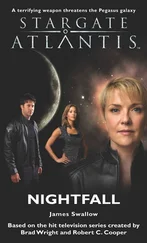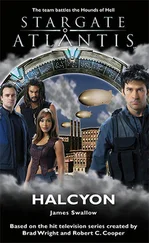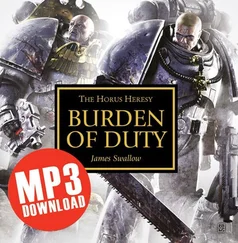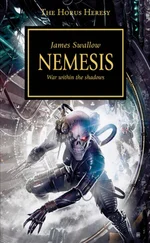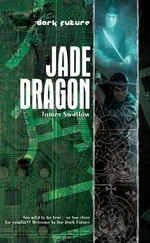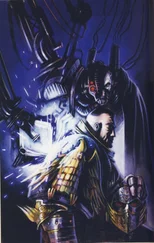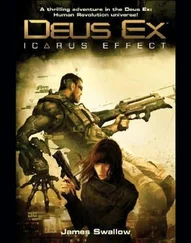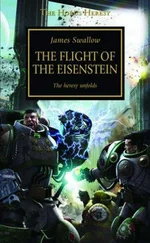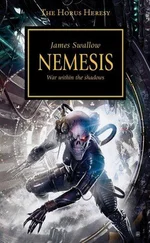“Tenth floor” Saxon reported. “We’re splitting up to search for the target.” He looked toward Federova, who gave him a curt nod and set off down the southern corridor.
“Copy, Gray” said Namir. “We’re coming to you. Isolate and neutralize.”
Saxon chose the northwest arm of the Y-shaped corridor and moved forward, low and fast, from cover to cover.
Something moved ahead of him, and he saw a squat, thickset shape roll out from a shadowed alcove. It was an ornate machine, plated with steel and sheathed with ceramic detailing—an elegant hotel service robot modeled on some arcane, pre-twentieth-century artistic ideal of what an automaton should be. It moved on fat gray tires, turning like a tall tank. A speaker grille presented itself to Saxon and spoke in Russian, then Farsi and finally English. “This area is off-limits to guests,” it declared. “Proceed no farther.”
A fan of green laser light issued out and scanned the hallway, catching Saxon by surprise. The machine caught sight of his drawn weapon and reacted instantly. Ceramic panels opened up to allow the vanes of a pulsed energy projector to emerge. “Mandatory warning delivered,” it said. “Deploying deterrent.”
A throbbing wave-front of force hummed from the robot and blasted down the corridor. Saxon went down as the pulse threw freestanding tables and flower vases into the air with the force of the discharge. The rush of the knockdown effect was powerful, like the undertow in an ocean wave.
He leapt from where he had landed, firing as he went. Bullets sparked off metal and inlaid wood, marring the elegantly worked surface of the machine. It fired again, dislodging pictures from the walls, blasting open the doors to empty rooms.
Saxon’s free hand closed around a cylindrical object on his gear vest and he tugged it free with a jerk of the wrist. By feel alone, he found the primer tab and pulled it. The weapon buzzed in response and Saxon threw it hard, diving for cover behind a damaged door.
The Type 4 Frag-k grenade clanked off the casing of the robot and bounced to the carpet beneath it; a moment later the explosive core detonated, blasting the machine off its supports and into a smoking heap.
Bursting from cover, Saxon raced through the cloud of cordite smoke and the humming after-note of the explosion. He took down the door to the corner suite with a kick from the heel of his tactical boot and pushed through, leading with the Hurricane.
Inside, the room was wide and devoid of angles, all soft furnishings and bowed windows. A thick layer of metallized plastic sheet—doubtless some kind of sensor baffle—coated the window glass, bleeding out all the color and warmth of the dawn rising over Zubovskaya Square. Saxon found the power feed for the baffle and disconnected it.
Off to one side, folding panels opened out into a range of rooms bigger than the house Saxon had grown up in; on the other side of the suite, a second bedroom had been gutted to accommodate the racks of a compact server farm, an orchard of data monitors, and a complex virtual keyboard.
A man in a dark jacket rushed Saxon from a doorway leading to the bathroom, the lethally compact shape of a Widowmaker shotgun in his hands. The machine pistol in Saxon’s ready grip chattered and the thug took the burst in the chest, crashing backward onto the tiles in a welter of blood. He ejected the clip, slammed a fresh load into place, and crossed into the bedroom.
Mikhail Kontarsky, his face lit by sheer animal panic, recoiled from the keyboard console and fumbled for a nickel-plated heavy-frame automatic pistol lying on top of one of the server pods. Saxon brought up the muzzle of the Hurricane and aimed it at Kontarsky’s chest. “Don’t,” he told him.
The Russian wasn’t the man he’d seen in the briefing picture anymore. That grim face and distant gaze were gone, replaced by raw terror. He gave a brittle nod and held his hands to his chest. “Please,” he began, his voice heavily accented. “You must not stop me.”
Something in Saxon’s peripheral vision shimmered, and he realized that beneath the panes of complex, scrolling data on the screens, there was a recognizable shape, the ghost-image of a human face, peering out through layers of static. “He’s here to kill you, Mikhail,” it said. The voice was toneless, sexless, flattened into a brittle machine-timbre that was utterly anonymous; the only thing that could be considered any kind of identity was a data tag showing a name, Janus.
“You told me I would have more time!” Kontarsky spat, his lips trembling. He gave Saxon a pleading stare. “Please, I have to finish what I started, or—”
Saxon took a warning step forward. “Touch that console and it will be the last thing you ever do, Minister.”
“Mikhail” said the video-masked figure. “This is bigger than you. We need the data on the Killing Floor, you must complete the upload—”
Saxon sneered and put a burst of rounds through the big screen, silencing the voice. Kontarsky howled and stumbled backward. “Enough of your pal.” He grabbed the man by the collar and dragged him forward, propelling him out of the room.
“No.” There were a dozen other monitors in the gutted bedroom, and screens in the main part of the suite; each one flickered into life, repeating the image of the static-shrouded face. The word repeated over and over as each one activated. “No. Not yet.”
“It’s over,” Saxon told him, ignoring the voice.
A flash of resentment and defiance crossed Kontarsky’s face, and he struggled in Saxon’s grip. “You’re not here to arrest me… You’re not a policeman! What authority do you have?” The moment passed just as quickly, as the man’s eyes fell to the machine pistol. “Please, I beg of you. Do not kill me. I only did what I thought was right!”
“He is not a criminal” insisted the voice. “You cannot judge him.”
Saxon’s jaw stiffened. “You’re part of a global terror network!” he spat. “You’re part of Juggernaut! And the people you sold out to are responsible for the deaths of my men!” The anger was coming back, and he felt the burn of it. “Operation Rainbird.” He snarled the words at the cowering man. “You know that name? You know what happened out there? They were soldiers, doing their jobs—it wasn’t even their damn war!” Saxon clubbed Kontarsky with the butt of the gun and sent him stumbling into the door frame. “Now move! I’m taking you alive! You can answer for what you’ve done!” He glared at one of the screens. “Are you watching this? Because we’re coming for you next.”
“N-no, no, no… That’s not true,” Kontarsky stammered, turning to the monitor. “Please, Janus!” he implored the video-ghost. “Help me…”
But the image’s attention was on Saxon. “Do you know what you are doing, mercenary?” He thought he detected a faint edge of reproach in the words. “Do you know what master you serve?”
The question made Saxon hesitate and he shot Kontarsky a hard look, hauling him up to his feet, pushing him forward into the middle of the room. The man staring back at him was pale with fear, his eyes betraying no duplicity, no deception. “I don’t know anything about your men,” he whispered. “You must believe me!”
And for a moment, Saxon did. He was a good judge of liars; he’d met enough of them in combat and elsewhere, and he knew the look of a man too afraid to lie. And if “Rainbird” meant nothing to him, then—
“Green light.”
Saxon heard the voice over the general comm channel a split second before the plastic-coated window crackled with fractures. Hardesty’s bullet entered Kontarsky’s head through the nasal cavity, blasting bone and brain matter across the wood-paneled walls. His body fell, jetting red, collapsing across a rosewood table.
Читать дальше
